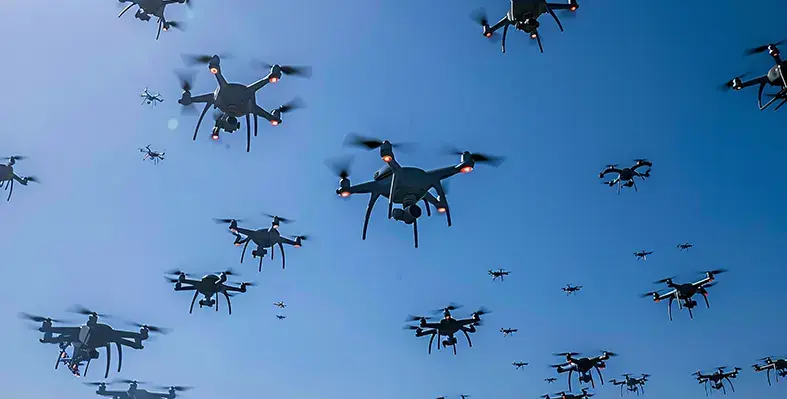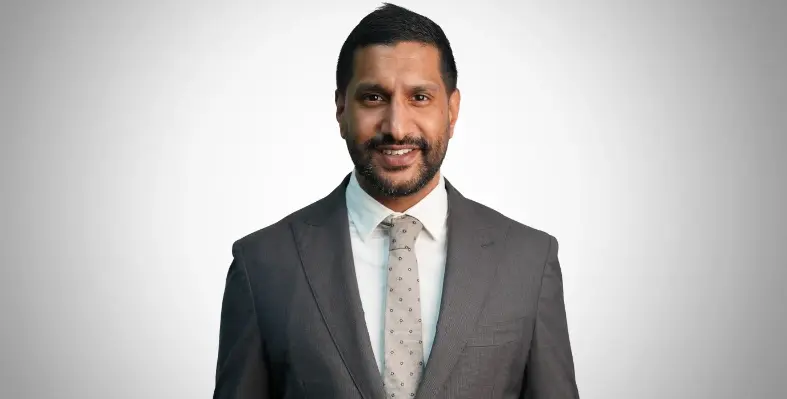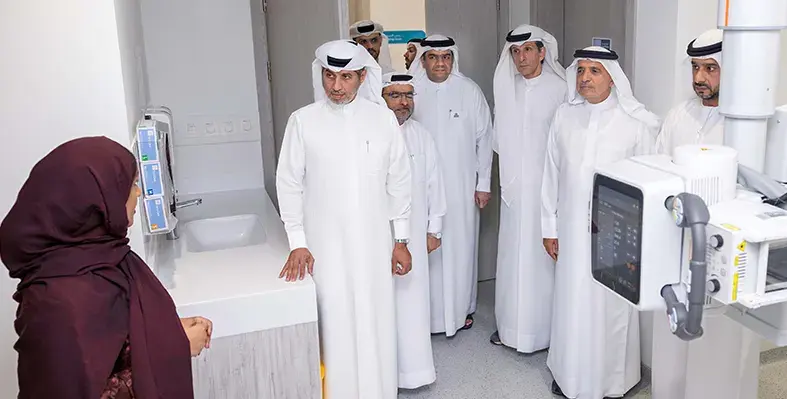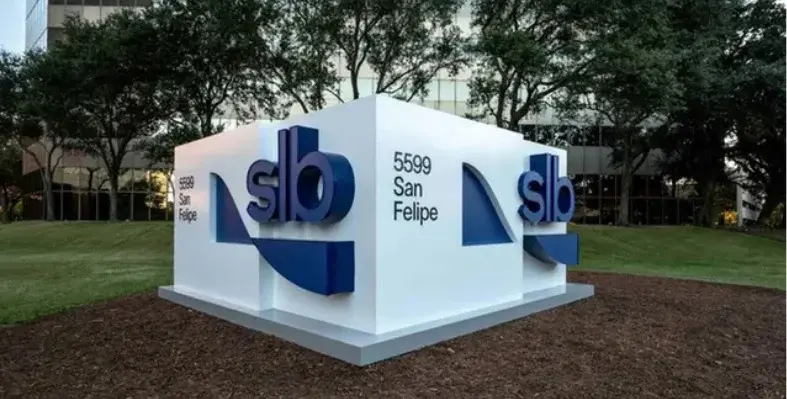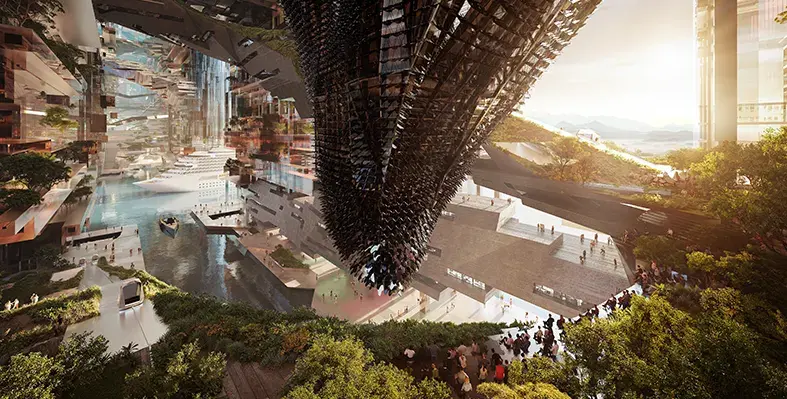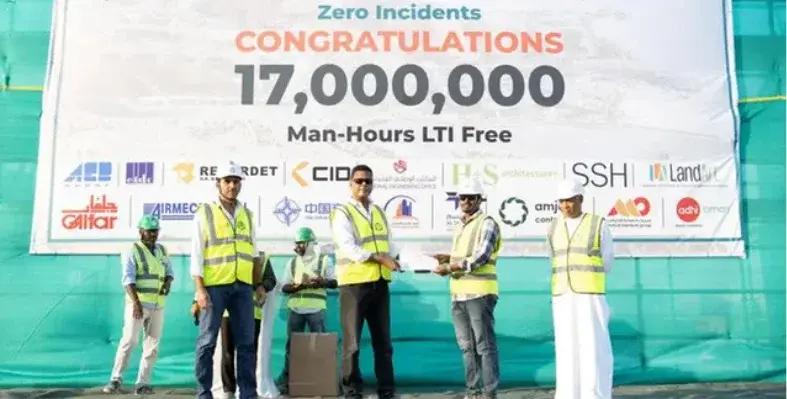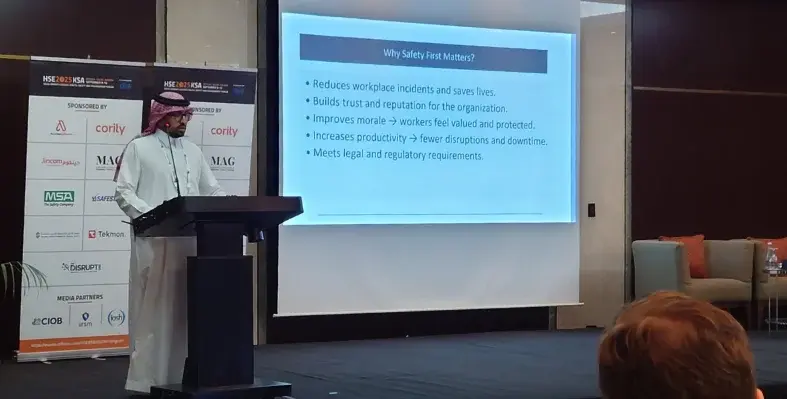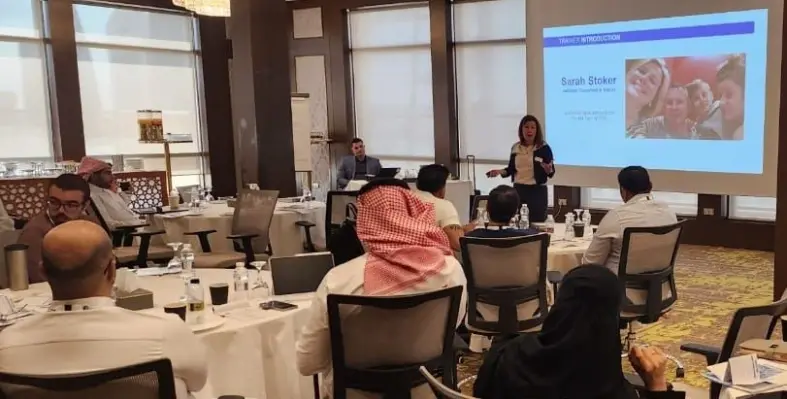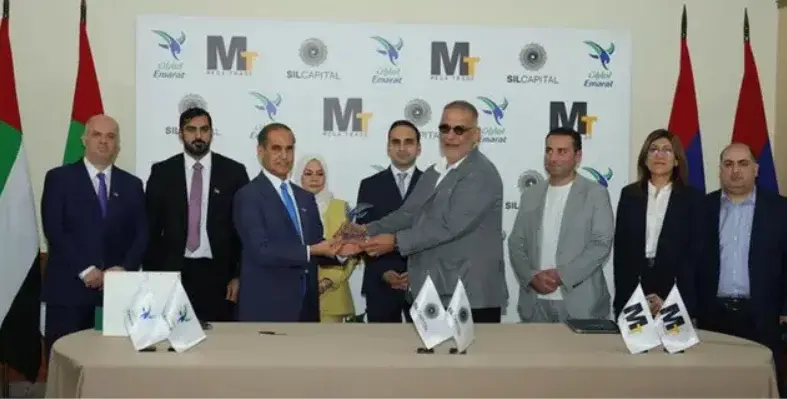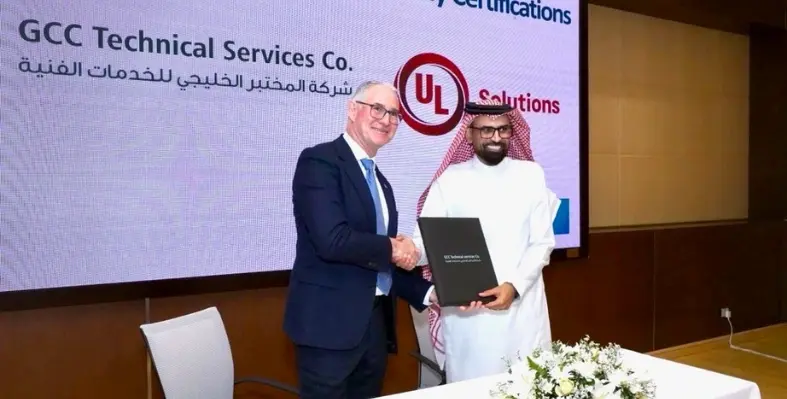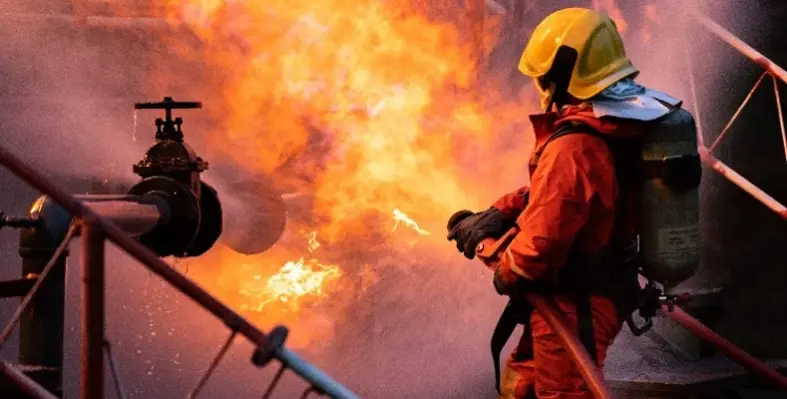Middle East
Middle East
- Region: Middle East
- Date: 24th November 2025
- Year: 2025
ADNOC, Technology Innovation Institute (TII) and ASPIRE, have launched a pilot project to test and deploy coordinated drone fleets for rapid aerial disaster monitoring, in a move toward integrating autonomous systems into live emergency operations
Under the agreement, signed during Abu Dhabi Autonomous Week 2025, TII working in partnership with ADNOC and supported by ASPIRE, will pioneer a system that provides ADNOC’s Crisis Management Center with real-time aerial intelligence during emergency situations. The initiative integrates autonomous, long-range, and swarm-based drone operations into one unified framework.
Drones stationed at ADNOC sites will be able to take off and stream live video directly to headquarters. Wider monitoring and long-range incident response will be handled by long-range autonomous drones launched from ADNOC’s network of unmanned aerial vehicle (UAV) hubs as well as smaller drones, linked back to ADNOC’s headquarters, enabling coverage across the country. In the event of large-scale incidents, fleets of autonomous drones can also be rapidly deployed via a mothership to scan extensive areas within a matter of minutes searching for stranded people and offering them connectivity and informational support.
By combining these capabilities, the project will allow ADNOC to reduce response times, increase situational awareness and minimise risk to frontline personnel. The collaboration could transform how critical infrastructure operators across the UAE and beyond safeguard their people and assets.
“Emergencies demand speed and clarity, and this collaboration is about delivering both. By combining ADNOC’s operational expertise with ARRC’s advanced robotics, we are showing how coordinated drone systems can provide immediate, actionable insights when they matter most. For Abu Dhabi, this is not just a pilot; it is an example of how applied R&D can turn deep tech into life-saving solutions that redefine resilience in critical industries,” said Andrew Strefford, executive director at ASPIRE.
“What we are building with ADNOC is a coordinated, multi-layered system that integrates autonomous, long-range, and swarm operations into one seamless framework. By plugging directly into ADNOC’s Crisis Management Center, we are validating technologies that could be scaled across the wider energy and utilities sectors,” said Prof. Enrico Natalizio, chief researcher of TII’s Autonomous Robotics Research Center.
“ADNOC continues to leverage advanced technologies including drones and robotics to enhance the safety and efficiency of our people and operations. Through this partnership with TII and ASPIRE, we will explore how coordinated drone fleets can be deployed to provide real-time intelligence across our value chain and better protect our people and assets,” said Khaled Alblooshi- vice president, Digital Projects and innovations, ADNOC.
- Region: Middle East
- Date: 17th November 2025
- Year: 2025
UAE's Ministry of Human Resources and Emiratisation (MoHRE) has outlined five essential safety requirements that all workers must follow at job sites, stressing that adherence to protective measures is not simply procedural but a critical necessity to safeguard workers and those around them.
MoHRE stated that workers must wear a helmet, safety vest, protective footwear, safety goggles, and ear protection against noise, according to a report by Gulf News.
These requirements form part of an integrated occupational health and safety framework aligned with Federal Decree-Law No. 33 of 2021 regulating labour relations, its executive regulations, and related ministerial decisions. The law also sets out a full range of preventive measures to be implemented at workplaces and labour accommodations.
MoHRE emphasised that the UAE places strong importance on creating a safe and attractive work environment, supported by proactive legislation governing workplace safety and labour accommodation. “Occupational health and safety is a top priority for the ministry, which strictly enforces the law against any violations,” MoHRE said, highlighting initiatives such as the Wage Protection System, which safeguards workers’ rights and ensures timely salary payments. The ministry added that strengthening health and safety practices enhances the UAE’s global competitiveness, boosts productivity, and supports a stable skilled workforce that drives economic growth.
Key safety rules
The report noted that MoHRE has identified four official channels for reporting occupational safety violations: the call centre (600590000), the MoHRE smart application, the official website, and the ministry’s verified social media platforms.
The Occupational Health and Safety Manual requires employers to provide appropriate protective equipment to prevent work-related injuries, illnesses, and fire hazards, and to comply with all preventive measures issued by the ministry. Companies must display detailed safety instructions in Arabic and other languages where necessary, in visible areas of the workplace, along with warning signs near hazardous locations.
Employers must also appoint qualified first-aid supervisors, maintain fully equipped first-aid kits, and ensure adequate fire prevention and firefighting tools suitable for their operations. They are required to regularly assess workplace conditions to ensure sufficient protection for workers and take practical steps to reduce or eliminate risks.
The guidelines further highlight precautions against falling objects, sharp tools, high temperatures, flammable materials, compressed gases, and electrical hazards.
- Region: Middle East
- Date: 14th November 2025
- Year: 2025
Penta Global, a leading player in the energy and construction sectors based in Abu Dhabi, is taking a pioneering stance on the mental health and well-being of blue-collar workers, an area that has long been overlooked in the industry.
Under the stewardship of executive director Sujay Nair, the company has made decisive moves to place people at the heart of its operations, urging the broader sector to move beyond compliance into genuine care for workforce welfare.
Traditionally, the focus within construction has been on health, safety, and environmental compliance, which are essentials for industry accreditation and operational soundness.
However, as Nair notes, there is still a considerable gap when it comes to mental well-being.
Sparked by thought leadership at a British Safety Council event, Nair and his team recognised this imbalance and responded by commissioning a comprehensive report on mental health in the construction sector, particularly concerning blue-collar workers.
The research process was revealing. Penta Global discovered significant data concerning the mental health of workers in the UAE, which were mostly collected via major firms and government-driven initiatives.
Over the past three years, the UAE government has enacted policies specifically focused on mental health, providing a strong foundation, but there remains much to build upon.
To bring attention to their findings and to inspire collaborative industry action, Penta Global hosted a roundtable during ADIPEC this year.
The session brought together stakeholders from leading organisations, government entities, and multinational firms.
Surprisingly, it emerged that while individual companies were implementing well-being programmes, there was little cross-industry communication or centralisation of best practices.
“We haven’t got that communication to have a centralised kind of policy which addresses these issues,” Nair observed, underscoring the need for a coordinated approach.
A collaborative approach
Beyond research and dialogue, Penta Global brought creativity to advocacy through their event booth, which featured a punching bag competition.
For every punch, the company pledged a donation to a local mental health initiative, blending fun physical activity with vital fundraising and awareness.
This approach speaks to the company’s ethos of focusing not only on compliance but also on positive engagement and long-term change.
Physical activity, notes Nair, is well-proven to enhance mental well-being, and this tie-in made the abstract more accessible and actionable.
The challenges are multifaceted. There are deeply rooted stigmas, language barriers, and fears of job security that deter workers from voicing concerns.
Nair stresses the need for education and open conversations, suggesting that integrating mental health into routine “toolbox talks” could be one practical step forward.
“If we can come together as an industry,” Nair asserts, “we can really drive meaningful change. And I think that’s the most important thing that came out [from the roundtable discussion].”
Looking ahead, Penta Global plans to share the outcomes of their roundtable widely and continue engaging with both industry leaders and social enterprises.
The goal is to drive policy toward preventative approaches rather than reactive ones, making mental health a shared responsibility.
By leading these efforts, Penta Global not only enhances its own culture but also sets a precedent for the entire sector to follow.
- Date: 13th November 2025
- Year: 2025
ENOC Group has opened a new ENOC Medical Fitness and Occupational Health Services Centre (EOHSC) in Jebel Ali, in collaboration with Dubai Health, to support the health and wellbeing of its employees and the local industrial sector
The new centre will deliver advanced medical fitness and occupational health screenings across the Group. The range of occupational health services offered includes pre-employment medical examinations, periodic health assessments, medical surveillance programmes for workplace hazards, vaccinations, health screenings, and wellness initiatives tailored to industrial workforce requirements. The Centre will also serve as a hub for visa-related medical services, facilitating the streamlining of administrative processes for employees across the sector.
Hussain Sultan Lootah, acting CEO at ENOC Group, said, “The launch of the new ENOC Medical Fitness and Occupational Health Services Centre underscores our unwavering commitment to the health, safety, and well-being of all our employees, as we strive for a productive, healthy, safe and secure work environment for all. The collaboration with Dubai Health reinforces our shared vision of creating safer, healthier work environments for both ENOC employees and the wider industrial community in Jebel Ali, aligning with Dubai's commitment to workplace safety.”
Khalifa Baqer, chief operations officer at Dubai Health, added, “The new Medical Fitness and Occupational Health Services Centre represents collaboration across Dubai’s sectors and reflects our vision of fostering healthier communities through preventive and diagnostic care. This partnership supports the well-being of the workforce in vital industries, enhances their quality of life and productivity, and demonstrates our commitment to building an integrated healthcare system that advances health for humanity.
“We look forward to this clinic playing an active role in contributing to a safe and sustainable work environment for the workforce in Jebel Ali.”
- Date: 12th December 2025
Tela, an agentic AI assistant, will be embedded across the SLB software and platform, automating select processes by applying a five-step process
That five-step agentic AI loop is built around five key processes: observation, planning, generation, action, and learning. Tela agents will be able to adapt to new data to improve efficiency outcomes in a vast number of use cases, from well log interpretation to drill issue prediction.
Rakesh Jaggi, SLB's president, digital and integration, introduced the new tool. "Technology like Tela marks a paradigm shift in how AI supports the energy industry, from subsurface to operations. Today, the industry faces a dual challenge: a leaner workforce and increased technical complexity, and Tela can address both.
"Tela doesn’t just automate tasks — it can understand goals, make decisions and take action. It’s the convergence of 100 years of domain science and cutting-edge digital technology, amplifying human ingenuity and redefining how work gets done."
Tela is now deployable across SLB software applications and platforms.
- Date: 12th December 2025
India’s Ken Institute has outlined a range of measures that could be implemented to protect workers and elevate health and safety standards across Saudi Arabia’s NEOM mega project
In a 4 November article published on the training group’s website, entitled ‘Worker Safety Challenges at Saudi’s NEOM Mega Project’, it highlighted several issues and challenges facing the scheme “with investigations revealing hazardous conditions, reported incidents of violence, accidents, and systemic abuses, especially for migrant workers.“
As well as alleged labour abuses, key concerns also include environmental factors, given the project’s location in the Saudi desert with threats such as heat stress, hydration and dust control.
The institute outlined various mitigation measures, which, when combined as part of a comprehensive occupational health and safety plan, would effectively reduce worker exposure to environmental hazards and enhance overall safety and productivity.
Key recommendations
To prevent future worker deaths at NEOM, Ken Institute issued the following recommendations, “combining best practices observed globally and NEOM’s commitments”:
Strengthen safety culture and enforcement: Embed a culture of safety as a core value at all levels, ensuring workers feel empowered to report unsafe conditions without fear of retaliation; Enforce strict adherence to international health and safety laws and standards; Conduct frequent audits and inspections by independent third parties to verify compliance and effectiveness of safety protocols.
Anti-discrimination and anti-harassment protections:Implement zero-tolerance policies on harassment and discrimination; Establish clear reporting and redress mechanisms; Train all workers and supervisors on respectful workplace conduct; Improve training and awareness; Provide comprehensive safety training to all workers and supervisors using innovative technologies to enhance hazard recognition and emergency response skills; Promote ongoing education on use of personal protective equipment, machinery operation, and accident prevention techniques.
Enhance working conditions: Limit work hours to provide mandatory breaks and enforce rest periods; Ensure worker accommodations include properly equipped health clinics and well-being facilities for timely medical care and mental health support; Implement smart safety technologies such as IoT-enabled helmets and proximity alert systems to monitor worker health and prevent accidents.
Timely and full payment of wages: Employers must pay wages on time and in full, with reliable wage protection systems monitoring compliance to prevent wage theft or delayed payments.
Transparent incident reporting and accountability: Establish a robust whistleblower policy allowing workers and subcontractors to report unsafe practices confidentially; Investigate all accidents, injuries, and near-misses thoroughly, publish transparent reports, and take corrective actions promptly.
Respect worker mobility and contractual rights: Convert temporary contracts beyond 90 days into full employment contracts, allowing workers to change employers and exit the country without prior employer approval, increasing worker agency and security.
Regulatory and contractual measures: Ensure all contractors comply with Saudi labour laws and international conventions addressing occupational safety and workers’ rights; Prohibit wage theft, forced labor, and restrictions on job mobility, providing workers with legal protections and support.
Emergency preparedness and response: Continuously update and rehearse emergency response plans tailored to the unique hazards of the site; Equip emergency teams with advanced communication tools and medical supplies to rapidly respond to accidents or health crises.
“Implementing these recommendations can greatly reduce risks and fatalities at NEOM by fostering a safer, healthier, and more accountable work environment,” Ken Institute noted.
- Topic: HSE
- Region: Europe
- Date: 12th December 2025
- Year: 2025
The Sustainable City — Yiti has celebrated 17 million safe working hours with no reported lost time injuries (LTIs)
Diamond Developers, the co-developers of the project in partnership with the Oman Tourism Development Company, announced the milestone.
It celebrated its rigid standards of health and safety on-site, recognising the role of partner Sustainable Development and Investment Company (SDIC).
Chief sales and marketing officer, Mahmoud Shehada, celebrated the event. "We believe operational excellence begins with people. Our goal is to deliver The Sustainable City – Yiti with uncompromising standards of quality and safety, ensuring timely progress and excellence in every detail, ensuring that everyone involved is supported with safety, respect, and wellbeing at the core."
SDIC's general manager, Eng. Abdelrahman ELHAG, added, "Safety is embedded into every stage of our on-site operations. Achieving 17 million LTI-free man-hours reflects the discipline, teamwork, and accountability of everyone working on The Sustainable City – Yiti.
"This milestone demonstrates that with the right systems, culture, and collaboration, large-scale construction can be delivered safely, efficiently, and to the highest international standards."
The Sustainable City — Yiti is marketed as the world's first net-zero emission community, and is situated 30 kilometres from the Omani capital, Muscat. When it opens, the one million square metre community will host more than 10,000 residents in villas, townhouses, and apartments.
- Date: 12th December 2025
At the KSA HSE Conference in Riyadh on 9th and 10th September, 2025, Kharsan Al Salem, HSEQ Consultant and Traffic Diversions Project Director at Riyadh Municipality, delivered a compelling session on the importance of embedding a 'Safety First' culture in organisations in Saudi Arabia. His talk emphasised that safety must move beyond compliance and become an ingrained value guiding every decision and action in the workplace
“Safety First is to place health and safety and well-being of people above costs and speed and convenience,” Al Salem began. “It’s not just compliance — it should be a culture and value for each organisation.” He reminded attendees that this commitment is not optional but essential: “Everyone deserves to go home safe.”
Al Salem explained that safety-first cultures drive measurable benefits: reducing incidents, saving lives, and boosting productivity and morale. “Safety first matters because it reduces workplace incidents and saves lives, builds trust and reputation for the organisation, improves morale—workers feel valued and protected, and increases productivity,” he said.
He outlined three foundational pillars of a sustainable safety-first culture: leadership commitment, team empowerment, and open communication. “If one of these pillars is weak, the culture will not be sustainable,” he cautioned.
Leadership Commitment
According to Al Salem, leaders play a defining role in shaping organisational culture. “Leaders set the tone by their actions and priorities,” he said. “When leaders actively demonstrate commitment—wearing the right personal protective equipment, following procedures, participating in safety meetings—it sends a powerful message.” This visible involvement, he added, “builds trust and accountability. Employees see that safety is taken seriously, and they feel motivated to follow suit.”
Team Empowerment
Empowering employees to take ownership of safety responsibilities was Al Salem’s second pillar. “Team empowerment is about giving employees ownership of their safety responsibility,” he explained. Providing proper training, resources, and fostering collaboration enables teams to prevent incidents before they happen. “Empowered teams are engaged and proactive,” he said, emphasising the importance of open dialogue where everyone feels comfortable raising safety concerns.
Open Communication
The third pillar, open communication, ensures a transparent and blame-free environment. “Organisations must create a safe environment where employees can report incidents or near misses without fear of retaliation,” Al Salem said. Sharing lessons learned and maintaining feedback loops, he added, “helps everyone improve, so safety processes evolve based on real experience.”
Al Salem also highlighted progress within Saudi Arabia. “Safety culture is gaining momentum, supported by government regulation and initiatives focused on workplace safety,” he noted. According to the Ministry of Human Resources and Social Development, 66% of establishments now comply with the Occupational Safety and Health system. Additionally, nine ministerial decisions and 41 new regulations have been implemented in the field, contributing to a drop in occupational injuries from 416 to 287 per 100,000 workers and a reduction in fatality rates from 3.8 to 1.12 per 100,000 workers.
Closing his session, Al Salem urged attendees to lead by example and commit to continuous improvement. “Leaders should lead by example every day. Teams must feel empowered to speak up and share their concerns. Together, fostering a culture of continuous improvement will make our workplaces safer and more productive,” he concluded.
Through his address, Al Salem underscored that a true “Safety First” culture is not a slogan—it is a shared value, practised daily, and essential for sustainable organisational success in Saudi Arabia’s evolving industries.
- Date: 12th December 2025
SafeStart International, a global leader in human factors training and safety performance improvement, is strengthening its presence in the Middle East with a series of initiatives aimed at transforming workplace safety culture.
Following the success of its recent Riyadh session, the organisation will host a two-day health and safety workshop at Millennium Downtown Abu Dhabi from 25-26 November 2025.
With more than 25 years of experience across 75 countries, SafeStart International has built a reputation for its pioneering work in human error reduction.
Founded by Larry Wilson, a leading voice in behavioural safety, the company helps organisations move beyond compliance and mechanical safeguards by addressing the human side of safety, focusing on the cognitive and behavioural factors that drive most incidents. SafeStart’s human factors training has been adopted by over 4,500 organisations worldwide, improving safety performance in industries such as oil and gas, manufacturing, construction, and utilities.
At the upcoming Abu Dhabi workshop, Larry Wilson will be joined by Sarah Stoker, development director at SafeStart International. Stoker brings more than two decades of operational and safety consulting experience and has played a key role in embedding SafeStart principles across organisations of varying sizes. Together, Wilson and Stoker will lead participants through interactive discussions, case studies, and practical exercises that explore how to identify and prevent critical errors before they occur.
The event will also feature a certification component for participants who complete the training and demonstrate mastery of key safety concepts. Unlike conventional compliance-based programmes, SafeStart’s approach focuses on strengthening situational awareness, improving decision-making, and fostering personal accountability for safety both at work and beyond.
The Abu Dhabi workshop follows a successful event in Riyadh held from 21-22 October, which drew participation from leading industry professionals and reinforced regional interest in proactive safety culture development.
At the workshop in Riyadh, participants explored practical techniques to reduce human error and improve workplace safety through interactive sessions and real-world case studies.
To support its growing footprint in the Middle East, SafeStart has appointed Anmol Tiwari as a dedicated regional resource, responsible for strengthening partnerships and supporting implementation across the Gulf. With over 15 years in sales consulting for wealth management, Anmol possesses a deep understanding of high-performance client relationships.
He uniquely merges this expertise with his role as a Safestart Trainer, specialising in the human factors approach to safety. Having worked in both Canada and the GCC region, Anmol offers a global perspective on enhancing human performance, reducing error, and building foundational strength within organisations. He is dedicated to creating cultures where safety and commercial excellence go hand-in-hand.
Anmol Tiwari, territory manager & consultant, Middle East & Africa (MENA), SafeStart International
With major safety-focused events such as the HSE MENA 2025 in Dubai from 18-19 November highlighting the region’s commitment to human performance and risk reduction, SafeStart’s expanding activities mark a significant step in advancing behavioural safety standards across the Middle East.
The company will be one of the sponsors for the conference, which is a leading regional gathering focused on health, safety and environmental best practices, bringing together practitioners, regulators and industry leaders to share insights and innovations across the Middle East and North Africa.
Seats for the Abu Dhabi workshop are limited. You can register here.
- Date: 12th December 2025
The Emirates Petroleum Company has announced a strategic partnership with MegaTrade to continue its global expansion
MegaTrade is an Armenia-based fuel and energy company, and will cooperate with Emarat to launch the energy retail brand in Armenia.
Several Emarat-branded service stations, which hope to embody the Emirati company's forward-thinking and globally benchmarked health, safety and operational standards, will launch across Armenia.
Chairman of SIL Capital (of which MegaTrade is a flagship entity), Eduard Sukiasyan, described the partnership as "a new chapter in Armenia’s fuel and energy sector.
"By combining Emarat’s international expertise with the capabilities of SIL Capital and MegaTrade, we will deliver services that meet the highest global standards. In a rapidly evolving environment, our goal is clear: to offer Armenian consumers nothing but the best.
"This partnership will establish Emarat as a new benchmark for energy services in Armenia."
Sukiasyan was in attendance at the signing ceremony for the new partnership, along with H.E. Tigran Avinyan, Mayor of Yerevan, and H.E. Dr. Nariman Mohd Sharif Abdulla Al Mulla, Ambassador of the United Arab Emirates to Armenia. He co-signed the agreement with H.E. Ali Khalifa Al Shamsi, Emarat's CEO.
Al Shamsi added, "This partnership underscores Emarat’s commitment to delivering value for stakeholders, empowering communities, and strengthening regional cooperation."
Emarat's regional expansion has seen it expand beyond the UAE into Egypt; Armenia is the first expansion point outside of the Middle East and North Africa.
- Date: 22 October, 2025
- Year: 2025
UL Solutions, a global leader in applied safety science, and GCC Technical Services Company (TS Co.), a leading integrated testing, inspection and certification service provider in the Middle East, have announced an enhanced strategic partnership aimed at advancing fire safety across the Gulf region.
As part of this collaboration, TS Co., an affiliate of GCC Labs, has been officially recognised as part of the UL Witness Test Data Program (WTDP) for fire safety. Under this programme, TS Co. will carry out critical fire safety tests at its laboratories in Dammam, Saudi Arabia, under the direct supervision of UL Solutions engineers on-site. UL Solutions will assess the laboratory, review the test data and use the verified results to grant certification and authorise the use of the UL Mark.
This locally based testing approach removes the need to ship product samples abroad, significantly reducing potential time-to-market for manufacturers throughout the region.
“This important step in the evolution of our collaboration with TS Co. will allow UL Solutions to effectively utilise their Dammam facility, strengthening fire safety and conformity services throughout Saudi Arabia and the greater Gulf region,” said Patrick Abgrall, director and regional general manager of the Built Environment group at UL Solutions.
Headquartered in Dammam, TS Co. supports major manufacturing industries in the Gulf Cooperation Council (GCC), which includes Bahrain, Kuwait, Oman, Qatar, Saudi Arabia and the United Arab Emirates, as well as in neighbouring markets. The company provides testing and certification services for fire safety to help demonstrate the safety, reliability and efficiency of equipment.
The expanded partnership comes at a pivotal moment as Saudi Arabia accelerates its Vision 2030 agenda, a national strategy driving large-scale development. Landmark projects include the futuristic city of NEOM, tourism destinations such as the Red Sea and THE RIG as well as the New Murabba project, which will establish a modern downtown in Riyadh.
Meanwhile, preparations continue for global events with new World Cup stadiums and Expo venues. Together, these giga-projects represent investments exceeding $1.5 trillion and demand adherence to the highest international fire and life safety standards. The collaboration between UL Solutions and TS Co. will be vital in meeting these requirements through advanced, locally delivered fire safety testing and certification.
“By combining UL Solutions' global leadership in safety science with our deep regional expertise, we are creating an unparalleled value proposition for the market,” said Khalaf Masaeed, Chief Executive Officer of TS Co. “This alliance will streamline product evaluation and certification, ensuring that the ambitious construction projects in our region are built with materials and systems that meet the highest international safety standards.”
- Topic: HSE
- Region: Middle East
- Date: 20 October 2025
- Year: 2025
The UAE’s National Emergency, Crisis and Disaster Management Authority (NCEMA) has launched the “Emergency and Crisis Atlas” at GITEX GLOBAL 2025, an integrated digital platform designed to enhance the speed and effectiveness of national response efforts
The initiative is part of NCEMA’s broader efforts to advance sustainable digital transformation in emergency and crisis management, through the adoption of advanced, data-driven geospatial solutions that enhance national resilience and build a more prepared and sustainable society.
The Emergency and Crisis Atlas leverages the latest artificial intelligence technologies, developed using Geographic Information Systems (GIS) and remote sensing technologies. It aims to strengthen national capabilities in risk forecasting, enhance preparedness and readiness, and improve the efficiency of response operations across various emergency scenarios. The integrated geospatial platform features over 40 specialised applications that cover different aspects of national risks. It provides advanced analytical tools that support strategic decision-making across all stages of crisis management. The system also offers interactive and analytical maps that visually present comprehensive data on risks, infrastructure, and vital resources across the country, empowering decision-makers to take accurate, data-driven actions.
The platform enables NCEMA personnel and strategic partners to perform advanced predictive analytics, build assumptions and multiple scenarios, forecast risks, and assess their impacts using precise analytical tools. It also assists relevant entities in identifying optimal readiness levels for each scenario and provides practical solutions to mitigate risk consequences
His Excellency Ali Rashid Al Neyadi, director general of the National Emergency, Crisis and Disaster Management Authority, stated, “The Emergency and Crisis Atlas is one of the Authority’s leading technological projects, embodying our direction toward harnessing advanced technology to enhance the national readiness and response system. The platform goes beyond displaying spatial data, it is a sophisticated analytical tool that builds proactive scenarios, tests the readiness of national plans, and supports decision-making based on accurate data and AI technologies."
Al Neyadi added that the Authority continues its efforts to develop the next generation of the Emergency and Crisis Atlas to be more interactive and integrated with national digital systems, thereby supporting intelligent monitoring, analysis, and response capabilities. He also noted that NCEMA is currently working on developing a geospatial simulation application, set to be launched soon, focusing on simulating flood risks in the most vulnerable areas. The goal is to study their impacts and build proactive models that help mitigate their effects and boost early preparedness.
